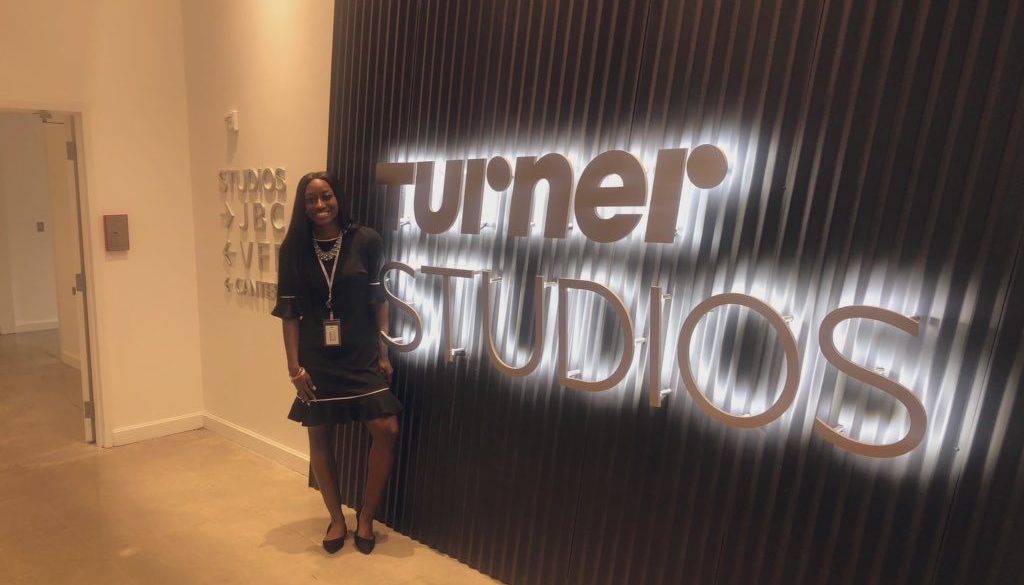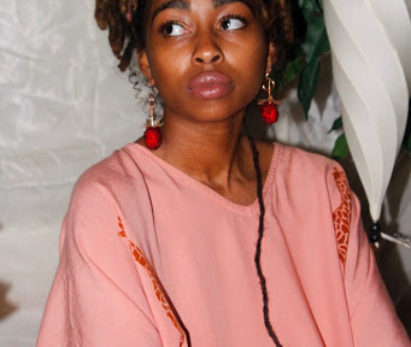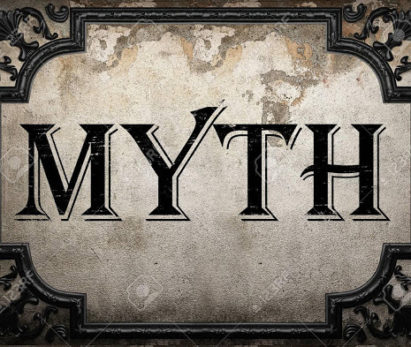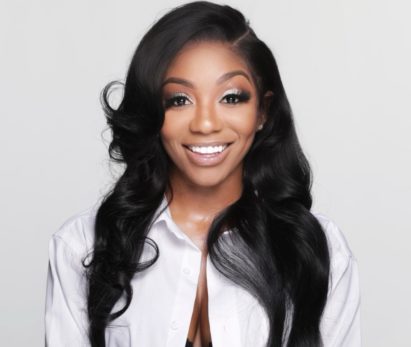Rising Sports Journalist Nia Sapp: All in for Basketball and Equality
For some people, basketball is just a game, but for Nia Sapp, it is more than special.
The 22-year-old Atlanta native transformed from an athlete to a sports journalist to top her game and stand for equality.
Becoming Nia, the Basketball Player
With a biological dad who played professional basketball and a mom in competitive tennis, Nia was given options to try out different sports.
“I started playing rec ball, my mom, she basically put me in a lot of different things to see what I wanted to do. So, I did ballet, I did T-ball, I did track and field, but basketball is what stuck with me the most.”
It was her competitive nature that attracted the 4-year-old to basketball, and since then, Nia fully dedicated herself to it.
Her calendar was set according to basketball schedule all throughout elementary school and her teenage years – play for school September through February and pick up AAU (Amateur Athletic Union) from March to August.
It was nothing but fun until she reached the high school recruiting season, which she described as “intense,” because people wanted to get on the recruiters’ radar so they get free education.
It was not much different for Nia. She also wanted to get her education paid for.
“I come from a single-parent home, so I wanted to make sure my mom didn’t have to worry about paying for college.”
![]() The recruiting process was stressful. She had received letters, emails, and phone calls from different schools that were interested in her, but there were numerous factors to consider before making up her mind: How consistent is your recruiting coach? Does the school have your major? What programs do they offer?
The recruiting process was stressful. She had received letters, emails, and phone calls from different schools that were interested in her, but there were numerous factors to consider before making up her mind: How consistent is your recruiting coach? Does the school have your major? What programs do they offer?
On top of that, she had to be careful and stay clear of injury.
After weighing everything, she narrowed her destination down to University of Arkansas, an NCAA Division I school.
But being 10 hours away from home and feeling homesick, Nia decided to transfer after her first year.
The only issue was that NCAA suspends the player’s eligibility to play for one season if they transfer from a Division I school to another.
“I didn’t want to do that, because I was transitioning from being a post player to a guard, and I wanted to keep developing my game. I felt like if I was to sit out, I can’t compete. So, I decided to go to a 2-year school.”
Without becoming a redshirt, she transferred to Miami Dade College, located three hours from her grandmother, to play for a year while earning her associate degree in Arts.
Then she went through the recruiting process again, but this time, she landed at the Alabama State University.
Junior year, she was back in Division I.
The Transition
People often see the perks of being a student-athlete, but Nia argues that there are also downsides that people hardly notice.
“Your scholarship can be taken away from you any day, you can get hurt, there’re so many things that come behind it… I would have three practices a day plus class. I never had time for internships, never had time to do anything extra. It was strictly class and practice.”
She grew up with basketball on one side of her heart, but she also had journalism on the other side.
She reminisced about her childhood, watching Robin Roberts, the current Good Morning America anchor and former ESPN sportscaster.
“I would see beautiful women broadcast the games and do sideline report. It was just inspiring to me, because you don’t see a lot of women in this industry, especially in sports industry.”
Her desire to major in Communications was out of the question.
![]() “I never wanted to be anything else, a coach or a teacher. I knew I wanted to be around sports for the rest of my life even after I got done playing basketball.”
“I never wanted to be anything else, a coach or a teacher. I knew I wanted to be around sports for the rest of my life even after I got done playing basketball.”
To pursue her dream, she decided to quit playing basketball after junior year and tilted her focus to journalism.
But, having been an athlete her entire life, she went through an identity crisis – she was way too used to herself as “Nia the basketball player.”
“The transition was definitely not smooth. It’s like you’re in a whole different world… I went through kind of a depression, because at one point, I felt like I wasn’t doing anything.”
At the same time, she admitted that it was a critical period.
For her life has always consisted of routines, she never had the time for herself.
“I was able to get to know me… I was always so busy playing basketball, so it was tough, but it was beautiful, because now it feels good to be at a different level in my life. I’ve elevated in a positive way.”
New Identity
After closing the chapter of physically playing, Nia now stands on the other side, talking basketball.
She emphasized the amount of work she had to put in to get to where she is today, a full-time intern for 11 Alive, a freelance editor for NBATV and a correspondent for HBCU Gameday.
“I thought I’m going to get Communications degree, and I’m a former athlete, so somebody will hire me. But there are millions of former athletes looking to get in this field. So, I had to have a real conversation with myself. You have to work!”
Upon quitting playing, summer 2018, she had her first journalism experience with a music radio station Streetz 94.5, which gave her the perspective of her career.
As a full-time student in her senior year, she used ASU athletics’ communication department to diversify her experience.
![]() She also interned with WSFA 12 News in Montgomery, Alabama, until she graduated with a bachelor’s in Communications in May 2019.
She also interned with WSFA 12 News in Montgomery, Alabama, until she graduated with a bachelor’s in Communications in May 2019.
After graduating, she came back home to intern with Crush Sports Talk, a radio station that allowed her to focus on women’s basketball.
Finally, in August, Nia made connections at the National Association of Black Journalists conference, which led her to NBATV.
“God really connected me with him. He introduced me to now my supervisor. I am currently a freelance editor for NBATV.”
It may seem like an easy straight path, but behind her achievements are the hard works and perseverance.
“In this industry you have to really, really work and be okay with rejections. You’re going to get rejected, but if you continue to work, it all pays off.”
But there was another hardship she had to face: being a black woman.
Thick Skin and Equality
Nia is a woman and is black.
People often question her knowledge and on-camera presence.
“They think, ‘She has a cute face, she probably doesn’t know anything about sports,’ because that’s the stereotype now. Then when people get to know me, they’re like, ‘Oh, you’re an athlete!’ yeah, I’ve been an athlete all my life!”
The stereotypes in sports media industry are nothing new, and so was she aware of it, but the reality was worse: endless questions about her hair, education and intelligence.
She advises to have some “thick skin” for it is not all peaches and cream as she had to continuously prove that she deserves to be in the industry.
Having to confront biased comments every day, she strongly stresses equality.
She strives to bring equal attention to HBCU (Historically Black Colleges and Universities) sports and women’s basketball, for she herself graduated from HBCU and has been a female athlete.
![]() “Using my platform at HBCU Gameday, I want to make HBCU sports more known for people to tune in… Most of the time, those games are on ESPN3 or are not televised at all.”
“Using my platform at HBCU Gameday, I want to make HBCU sports more known for people to tune in… Most of the time, those games are on ESPN3 or are not televised at all.”
WNBA is where Nia’s passion is at. She wants to become a color commentator for either the WNBA or NCAA women’s basketball.
As much as the interest, she knows how differently the men and women’s games are dealt with: ignorant comments on social media, underpayment and unequal game coverage.
“You see so many trolls on Twitter. ‘Who cares about women’s basketball, this is boring’ or ‘they need to be in the kitchen,’ you always hear stuff like that… These women are getting underpaid… They’re not asking to be millionaires; they’re asking to be treated as human beings that work just as hard as the men.”
Nia is already using her platform effectively.
She arouses her followers’ fascination by sharing interviews of WNBA players and coaches.
“I’ve had so many male friends reach out to me and say, ‘I’m watching the WNBA because of you and what you’re doing,’ or, ‘That was a good game!’ It warms my heart… I want to get to the point where I’m pushing it to be the norm in this world, because right now it’s not.”
She Keeps Going
Being a black woman in the sports media industry is tough, but that is why Nia cannot stop slogging.
Just as Robin Roberts’ presence on TV has given young Nia the hope that she can also do it, she dreams of becoming a color commentator representing equality.
“My ultimate goal is to become a color commentator for women’s basketball and HBCU sports. So, right now, I want to continue to build my content and keep pushing to get those two that mean so much to me.”
It is only a matter of time for Nia, the rising sports journalist, to become the Robin Roberts to young people – planting hope that anyone can do it.





